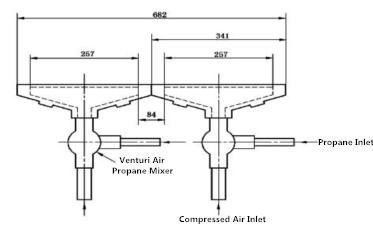Companies Specializing in Conductor Resistance Testing Fixtures and Solutions
Understanding Conductor Resistance Fixture Companies
In the realm of electrical engineering and testing, the importance of ensuring optimal conductor performance cannot be overstated. This is where conductor resistance fixtures come into play. These specialized devices are designed to measure the resistance of electrical conductors, which is crucial for assessing the quality and safety of electrical components. The demand for precise and reliable measurements has led to the emergence of several conductor resistance fixture companies, each offering innovative solutions to meet industry standards.
What is a Conductor Resistance Fixture?
A conductor resistance fixture is a testing setup that allows engineers and technicians to measure the electrical resistance of various conductors under controlled conditions. The fixture typically comprises terminal connectors, conductive plates, and precision measurement instruments. By applying a known current through the conductor and measuring the resultant voltage drop, users can calculate the resistance using Ohm’s law (R = V/I). Accurate resistance measurements are essential for ensuring that conductors will perform effectively in their intended applications, whether in power distribution systems, electronic devices, or telecommunications.
The Importance of Measuring Conductor Resistance
The resistance of a conductor can directly impact its efficiency and functionality. High resistance in conductors can lead to increased heat generation, energy losses, and potential failure of electrical systems. This makes it imperative for manufacturers and engineers to implement rigorous testing protocols. Conductor resistance fixtures provide the means to conduct these tests accurately. Regular testing helps companies ensure their products meet regulatory standards and deliver reliability in real-world applications.
Leading Companies in the Industry
The market for conductor resistance fixtures has seen many players entering the scene, driven by technological advancements and an increasing emphasis on quality assurance. Some notable companies in this industry include
1. Megger This renowned company specializes in electrical testing equipment, including conductor resistance testers and fixtures. Megger is known for its reliability and ease of use, making it a favorite among professionals in the industry.
conductor resistance fixture companies

2. Fluke Corporation A leader in electronic test tools, Fluke offers a range of conductor resistance testing equipment. Their devices often feature advanced functionalities, such as data logging and Bluetooth connectivity, which enhance testing efficiency.
3. AEMC Instruments Focusing on electrical and electronic testing, AEMC provides a variety of resistance testing solutions, including its dedicated conductor resistance test kits designed for both field and laboratory settings.
4. Hioki A Japanese company recognized for precision measurement, Hioki's products include innovative conductor resistance measurement devices that cater to diverse applications, from industrial to research environments.
5. Chauvin Arnoux This company specializes in electrical measurement solutions and offers robust fixtures for conductor resistance testing, emphasizing user-friendly designs and accurate results.
The Future of Conductor Resistance Testing
As industries move towards automation and smart technology, the need for enhanced conductor resistance testing methods is becoming increasingly important. Future advancements may include automation in testing processes, integration with digital platforms for real-time data analysis, and improvements in portability for field testing. Companies are also likely to invest in research and development to create fixtures that can test a wider range of materials and conditions, further enhancing reliability and safety.
Conclusion
Conductor resistance fixture companies play a vital role in maintaining the integrity and performance of electrical systems worldwide. By providing accurate measurement solutions, they enable manufacturers and engineers to ensure that their products meet necessary standards, ultimately contributing to safer and more efficient electrical systems. As technology continues to evolve, these companies will likely adapt and innovate, shaping the future of electrical testing and quality assurance.
-
Why the Conductor Resistance Constant Temperature Measurement Machine Redefines Precision
NewsJun.20,2025
-
Reliable Testing Starts Here: Why the High Insulation Resistance Measuring Instrument Is a Must-Have
NewsJun.20,2025
-
Flexible Cable Flexing Test Equipment: The Precision Standard for Cable Durability and Performance Testing
NewsJun.20,2025
-
Digital Measurement Projector: Precision Visualization for Modern Manufacturing
NewsJun.20,2025
-
Computer Control Electronic Tensile Tester: Precision and Power for the Modern Metal Industry
NewsJun.20,2025
-
Cable Spark Tester: Your Ultimate Insulation Assurance for Wire and Cable Testing
NewsJun.20,2025
 Copyright © 2025 Hebei Fangyuan Instrument & Equipment Co.,Ltd. All Rights Reserved. Sitemap | Privacy Policy
Copyright © 2025 Hebei Fangyuan Instrument & Equipment Co.,Ltd. All Rights Reserved. Sitemap | Privacy Policy
